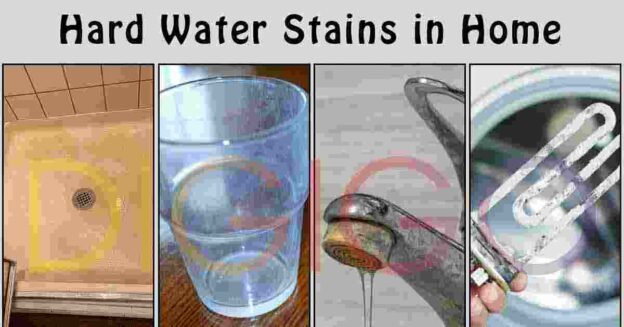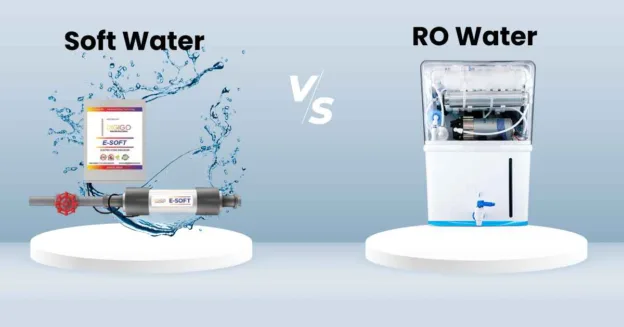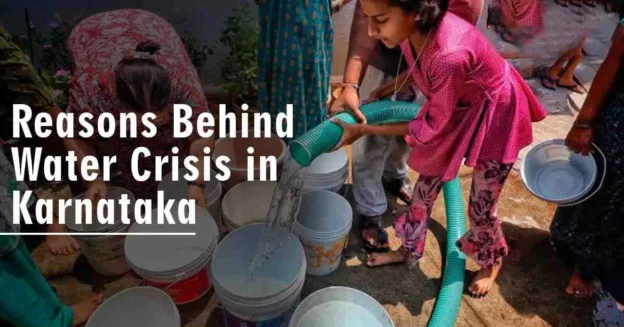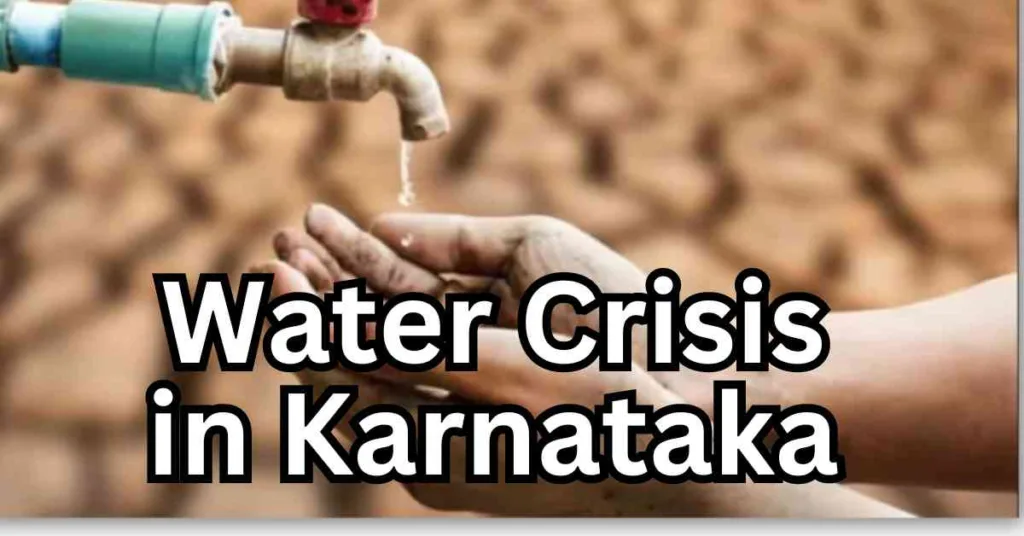Hard Water stains are a common problem in homes as well as in industries. These are created due to the usage of Hard Water that runs through these appliances.
Hard Water can have a negative impact on your appliance and is capable enough to reduce the efficiency. Hard Water contains several minerals that are not beneficial rather acts as a slow poison for the lifespan of your appliance.
Here are some ways to Remove Hard Water Stains from your home appliances and make them clean from all the scales.
5 Ways to Remove Hard Water Stains From Home Appliances
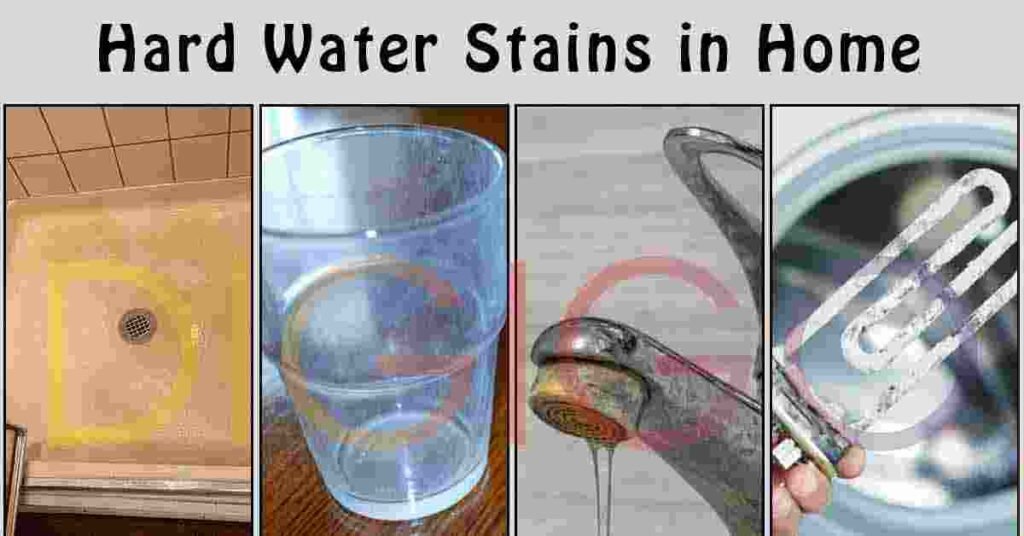
Remove hard water stains using Vinegar
Vinegar is a natural way of cleaning the stains and scales from your appliances. If you don’t want to use Harsh chemicals or unnatural ways then Vinegar is the best choice. Just add some vinegar in the spray bottle and spray it on the surface, let it be there for around 15 minutes and after that clean it with a brush or loofah. If it seems to dry up then add some more vinegar to keep it moist. You can use several different types of vinegar to remove hard water stains, including white vinegar and apple cider vinegar. Try using whatever you have on hand first. If it doesn’t do the trick, look for cleaning vinegar, which is more acidic for superior power against hard water stains.
Remove hard water stains using Hydrogen Peroxide
Hydrogen Peroxide is really powerful while cleaning the stains from the Hard Water. Hydrogen Peroxide can easily remove soap scums as well as stains from the bathing area or washrooms accumulated during the shower.
Remove hard water stains using Cream of Tartar
For exclusive cleaning make a paste of Tartar cream type of baking powder, and apply it to the stained area. Let it sit for up to 30 minutes, and then scrub with a damp sponge to reveal the results of your efforts.
Remove hard water stains using Baking Soda
Yet another item easily available at home, Baking Soda can clean your tiles as well as Hard Water stains easily without any problem. Apply Baking Soda paste on the stain and wait for a few minutes then clean it with a scrub or brush. And there your shiny new looking tiles will be waiting for you.
Remove hard water stains using Fluoride Toothpaste
Brushing your teeth with Fluoride toothpaste is beneficial but did you know that it can help you clean your appliances and remove Hard Water stains. Apply the paste on the stained surface and wait for a few minutes and then brush it with a scrub or loofah and there you’ll have a clean shiny surface.
Remove hard water stains using DIGIGO Water Softeners
Hard Water is a common issue in every sector such as residential, agriculture, commercial and industries. So, to cure these problems these are temporary solutions you’ll be able to clean but the surface will become full of stains over a period of time. So solution of remove hard water stains permanently is DIGIGO Water Softeners, Water softeners that uses zero salt and zero chemicals to convert the Hard Water into Soft Water.
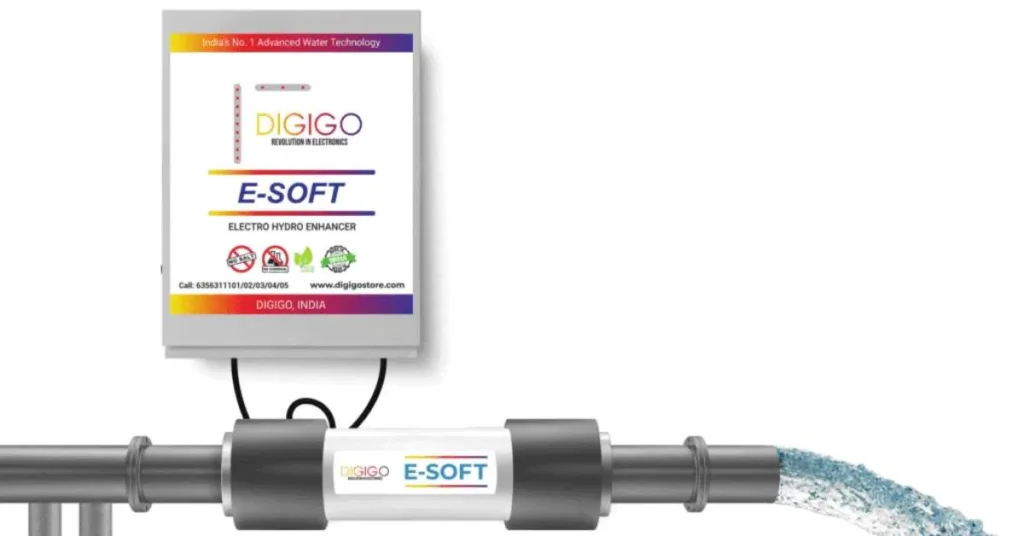
Digigo provide Water Softener for Home, Water Softener for Agriculture, Water Softener for Industry, Water Softener for Commercial Use.
Digigo E-Soft is attached to the water supply pipe and is capable of converting the Hard Water into, without using any chemicals. E-Soft removes harmful minerals from the Hard Water converting it into Soft Water. Hard Water can be harmful to skin as it may cause some allergy and result in baldness. Moreover, it will reduce your machine life. So, we recommend you to choose a Water Softener System as per your requirements. For the best Water Softener, choose DIGIGO.
